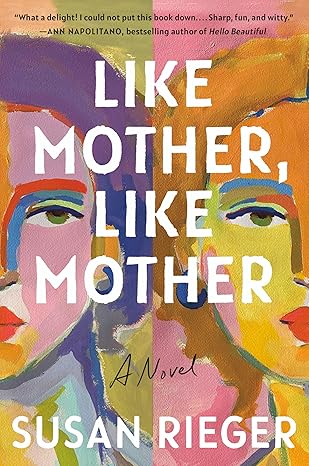3.5 Stars
This novel touches on several themes: family, marriage, ambition, motherhood, and mother-daughter relationships.
When Lila Pereira is two years old in 1960, her father Aldo has his wife Zelda committed to a mental institution. Lila never sees her mother again as she is told that she died. An ambitious woman, Lila eventually becomes executive editor of a major newspaper. Though she has three daughters, Lila prioritizes her career, leaving her husband Joe to raise the girls. Grace, the youngest child, feels abandoned by her mother though she becomes a successful reporter. Whereas Lila never questioned her father’s version of events, Grace has her doubts about Aldo’s story, refuses to live with ambiguity, and sets out to confirm what happened to her grandmother: Did Zelda really die while in the psychiatric facility?
Zelda, Lila, and Grace are the central women; each is the focus of one of the novel’s three sections. Strong-willed, ambitious, and intelligent, they have similar personalities. One difference is that Zelda and Lila look forward into the future, not back into the past, while Grace wants to uncover her grandmother’s past. Though she is certainly flawed, I liked Lila. She is open and honest from the beginning about her career ambitions and about not wanting to be a conventional mother. I found Grace annoying; she is selfish and resentful and desperate for attention. Instead of appreciating what she has – a truly privileged life – she takes petty revenge on Lila by writing a book about her. Her father tells her she’s self-absorbed, “’stuck in adolescence,’” and her aunt tells her, “’You’ve got to grow up.’”
There is a large cast of characters, but I never found myself confused because they are sufficiently differentiated. (There is a chart at the beginning to help if needed.) An issue, however, is that some of these characters (Joe, Frances, Ruth, Kathy and Richard Goldsmith) are almost too good to be true. And as soon as Nicholas and Alexander were introduced, I guessed what roles they would be given. The ending is also a bit too much like that of a fairy tale: everyone finds true love, and has a successful career with financial stability.
The novel jumps back and forth in time and from one character’s point of view to that of another. My issue was that this approach sometimes led to repetition. An event is mentioned and then detailed later. The pace is also slower because of this.
I was confused by the political rants. Real political figures are mentioned (Barack Obama, Hillary Clinton, Joe Biden) but then there’s a fictional president, Charles Webb, who is definitely modeled on Donald Trump. Webb is portrayed as a villain so the author’s political views are obvious. Though I agree with her, I found some of these rants out of place since they are not relevant to the book’s themes.
The book is entertaining and inspires thought about the complexities of families, marriages, and parenthood and about how the past informs the present.

No comments:
Post a Comment